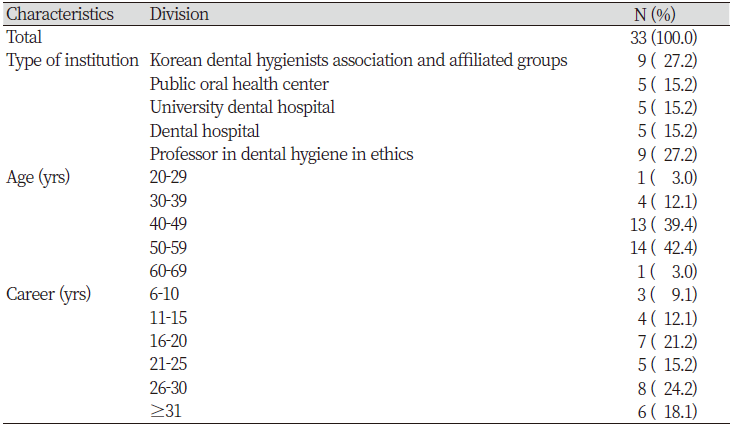Abstract
Objectives: We classified items required for dental hygienists’ ethics training by domains. We administered a survey on experts using the Delphi method to collect opinions for guiding future trainings. Methods: 33 participants were selected and analyzed using the Delphi method thrice. Results: For relationships with patients, the item “1.3.1.1 I can keep the confidentiality of the information obtained from patients, including mature minors, related to their specific disease and treatment during medical care as well as other personal information of the patients.” had the highest mean value (mean=4.88). For medical and social relations, “2.3.2.2 I can understand how staff provide dental services as a team and explain a dental hygienist’s roles and responsibilities that enable a team to function effectively.” had the highest mean value (mean=4.85). For individual specialized fields, “3.1.1.1 I can explain the roles and responsibilities in public health of individuals, the public, the state and professional dental hygienist.” showed the highest mean value (mean=4.82). Conclusions: We identified 3 categories, 14 sub-categories, and 53 items on the scope of training and standards for ethical competencies for practical applications in professional ethics training of dental hygienists.
Figures & Tables



